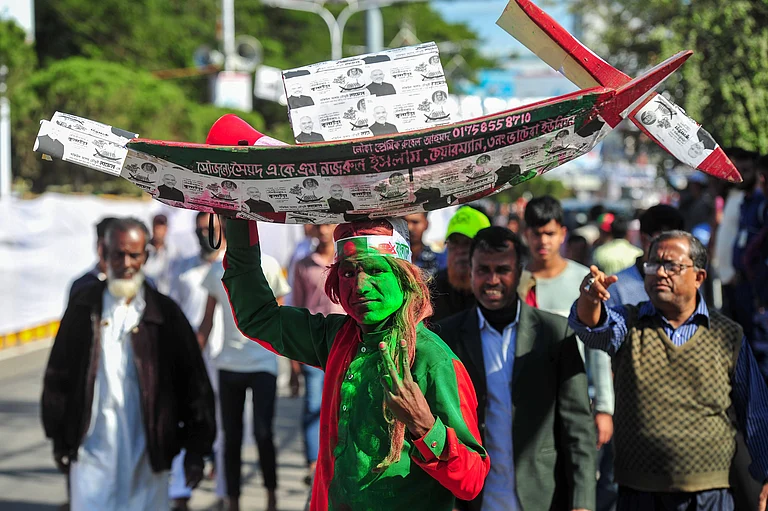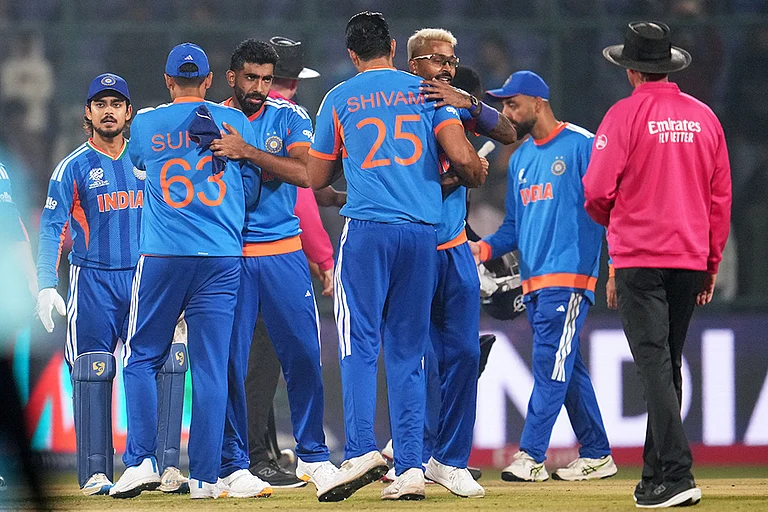Janadesh’ or ‘peoples verdict’ in Andhra Pradesh is extraordinarily explicit. At least for the next five years, it is the end of the road for Nara Chandrababu Naidu and his family fiefdom Telugu Desam Party (TDP). In its four-decade long history, the TDP’s tally of 20 out of 175 assembly seats is its lowest. Add to that a meager tally of three Lok Sabha seats. Credit is due to go to Y.S. Jaganmohan Reddy, who achieved a remarkable feat—His YSR Congress Party won 154 assembly seats, besides 22 of Andhra’s 25 Lok Sabha seats. Surely, his ‘historic padayatras’ endeared him to the common man.
The key lesson: pre-poll freebies and tall promises cannot be a substitute for failing to deliver during a five-year term. Regional satraps like Naidu and K. Chandrasekhara Rao should also be wary of boundless ambition and overweening arrogance. Cronyism in the aid of corruption is another canker. Use of friendly media houses cannot fool an aspirational, young electorate for long too.
In 2014, Naidu led his TDP in alliance with the BJP to victory, as the people of Andhra felt the Congress had done them injustice by bifurcating the state in 2014. Reddy’s YSRCP lost the polls but emerged as the principal opposition, winning nine Lok Sabha and 65 assembly seats. Even so, Reddy tirelessly consolidated his base amongst people, holding protest rallies and launching ‘padayatras’.

Meanwhile, TDP chief Naidu failed to read the signs. Following the BJP’s defeat in Rajasthan, Madhya Pradesh and Chhattisgarh in December, Naidu made the issue of a “separate category status” for Andhra as his key poll plank. At the same time, he fashioned himself into the chief organising force of a tentative opposition coalition against the BJP.
“Undoubtedly, our party chief himself is responsible for the defeat. His decision to walk out of the NDA alliance just two years before polls and picking up unnecessary fights with PM Modi cost us heavily. Add to that his confidence about winning polls without any alliance,” admits a senior party leader. After his party’s landslide victory, YSRCP chief Jaganmohan Reddy said, “It’s people’s will that ultimately prevailed. Today, people of AP are free from the shackles of TDP misrule.”
In Telangana, the Telangana Rashtra Samiti (TRS) leader K. Chandrasekhara Rao, who won 2014 polls purely on sentiment, also failed to read the political winds. However, in a tactically astute move, he advanced the assembly polls, fearing a possible ‘Modi wave’ during the LS polls, and won 89 of the 117 seats in the December 2018 polls.

Buoyed by that success, KCR boasted of winning 16 LS seats, besides nursing an ambition, like Naidu, of playing a role in an opposition ‘federal front’. All in all, KCR’s arrogance led to his party’s poll reverse, particularly the defeat of his daughter Kavita. The TRS now stands reduced to a mere nine LS seats, conceding four to BJP and three to Congress.
In fact, KCR’s strong criticism of Modi and his politics in Karimnagar was a turning point that hardened people’s sentiments against him in politically crucial northern Telangana—Adilabad, Nizamabad and Karimnagar. Add to it the sidelining of his nephew, K. Harish Rao, a popular leader, and appointing son K.T. Rao as the TRS president. Ipso facto, the writing on the wall is quite clear—the defeat of Kavita is a rejection of dynastic politics. Also, the victory of D. Arvind of the BJP, son of erstwhile Congress stalwart D. Srinivas, is a reflection of people’s anger on KCR’s policy of ‘minority appeasement’.






















